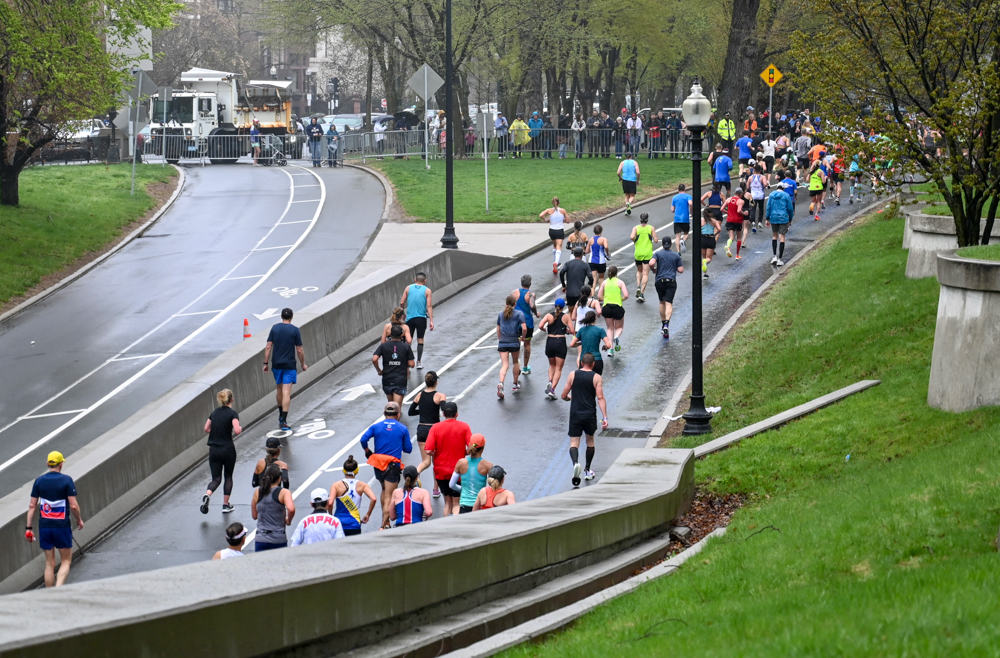
Over 30,000 runners raced the 26.2 miles from Hopkinton to the finish line on Boylston Street in the 127th Boston Marathon on Monday, one decade after the bombings that killed three and injured hundreds near the finish line.
Trisha Nelson, a student at Northeastern University, volunteered at mile 17 near Boston College where she worked at the hydration station passing out water and Gatorade to the runners.
She said the most memorable part of the race was the “supportive atmosphere that the people created.”
“There’s not that many spaces in this big city where you see so much support and just general love for other people,” Nelson said.
John Templeton, who ran the marathon, said he felt both “exhausted” and “exhilarated” when reunited with his wife and daughters just past the finish line.
As a recovering alcoholic in his 21st year of sobriety, Templeton said sobriety has enabled him to focus on healthy habits such as running.
“You feel so accomplished,” Templeton, who ran his second Boston Marathon this year, said. “You feel like you took part in something that is really, really big.”
Marshall Witt, the Chief Financial Officer of SYNNEX Corporation in Silicon Valley, completed the Boston Marathon for the 12th time in a time of 3:41:00.
Witt said he ran the Boston Marathon in 2013 with his brother and nephew, finishing just 10 minutes before the bombs went off at the finish line.
“I probably was two blocks away when I heard a boom, and it sounded just like a large dumpster lid hitting or slamming shut,” Witt said. “It does leave that scarring impact on yourself of what could have happened, what could have gone wrong.”
Despite living through the event, Witt continues to return to what he called the “best marathon in the world.”
“Being back in Boston for the 10 year anniversary was very meaningful,” Witt said, noting what he called the “resiliency” of Boston and saying the bombing was an experience that he’ll never forget.
Jessica Flaherty and her husband have been volunteering at the Boston Marathon since 2014, and said the most rewarding part of volunteering is being there to “help injured runners in the medical tent, and [being] the conduit between them and their loved ones.”
“It’s always such a special day for Boston, and around the world, because it really brings in such a diverse running group to Boston,” Flaherty said.
This year also marked the first time the B.A.A allowed non-binary runners in the marathon.
University of Vermont student Kae Ravichandran won the non-binary category with a time of 2:38:57.
Evans Chebet of Kenya won the professional men’s division with a time of 2:05:54, upsetting the marathon world record holder Eliud Kipchoge. Hellen Obiri of Kenya won the professional women’s division with a time of 2:21:38.
Switzerland’s Marcel Hug won the men’s wheelchair division with a time of 1:17:06, while American Susannah Scaroni won the women’s wheelchair division with a time of 1:41:45.
Templeton said training is a sacrifice, but the ultimate goal is to run in the Boston Marathon.
“Everything good about America is the Boston Marathon,” Templeton said. “You really feel like you’re part of history, and it’s just exhilarating.”























































































































